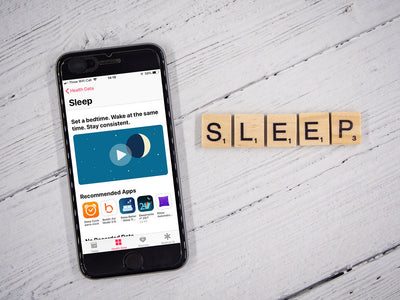
We’re all about a good night’s sleep. But we’re acutely aware that for 31% of the population, insomnia prevents this all too frequently.
But just how big a deal is it? We delve into insomnia statistics to find out how much of a problem this condition really is.
Key Findings in Summary
In a nutshell, here’s what we found:
- 22% of people in the UK struggle to fall asleep every single night
- A further 15% struggle to fall asleep at least once a week
- Monthly NHS prescriptions for Melatonin rose by 148% from June 2014 to May 2019
- In May 2019, the NHS issued 87,990 prescriptions for Melatonin at a cost to the NHS of £2.6 million
- In the same month, it issued 438,399 prescriptions for Zopiclone, costing £292,354.
How Many of Us Have Trouble Falling Asleep?
Most of us have probably experienced the odd difficult night's sleep. But for some people, difficulty falling asleep is a regular problem.
To find out what the statistics look like in 2019 for this, we surveyed 500 people in the UK (using Google Surveys). We asked them the following question:
- How often do you have trouble falling asleep?
It appears that it's a big problem:

- 22% of those in the UK say they have trouble falling asleep every single night
- A further 15% have trouble falling asleep at least once a week
- Just 40% say they never have problems falling asleep
There are differences in responses from men and women too.
- 27.5% of women have trouble falling asleep every single night
- This number falls to 18.5% of men
Similarly, the statistics show different age groups are differently affected:
- 30.2% of those aged 55 to 64 have trouble falling asleep every night
- A further 20.5% of this age group have trouble falling asleep at least once a week, ultimately meaning just over half of this age group struggles to fall asleep on a regular basis
- At the other end of the scale, just 16% of 35 - 44 year olds experiences nightly troubles falling asleep
Insomnia Medication Prescription Statistics
Survey data isn't the only indicator of how common sleeping troubles and
Usefully, the NHS publishes prescription data each month. This data relates to prescriptions issued by community medical centres like GP surgeries (as opposed to hospitals) in England only. It's also worth noting that a single prescription item can vary in terms of quantity of medication (which can explain why sometimes more prescriptions cost less).
We've analysed some of these huge files to take a look at statistics for just some of the most medicines most commonly prescribed to treat insomnia:
- Melatonin
- Zopiclone
- Chloral Betaine
- Temazepam
- Diphenhydramine Hydrochloride
In summary, here's how many individual prescriptions were issued for each of those medications and the cost to the NHS for the month of May 2019.
lMelatonin Prescription Statistics
- Between June 2014 and May 2019, the number of monthly prescriptions issued for Melatonin increased by 148% from 35,421 prescriptions to 87,990
- The cost to the NHS of these prescriptions rose by 49% at the same point, amounting to £2,657,882 in May 2019

Zopiclone Prescription Statistics
Prescriptions for Zopiclone haven't grown as much over the past 5 years. However, the numbers remain incredibly high. Statistics suggest this to be much more commonly prescribed as treatment for insomnia than melatonin.
In May 2019, there were 438,399 prescriptions for Zopiclone issued at a cost of £292,354 (making this also, it seems, a much lower cost drug).

Chloral Betaine Statistics
A much less commonly prescribed insomnia medication (the numbers suggest), Chloral Betaine was prescribed just 393 times in England in May 2019 at a cost of £60,139 making this one of the more expensive options.
Prescriptions for chloral betaine have been steadily declining over the past 5 years as shown below:

Temazepam Prescription Statistics
Arguably one of the more widely heard of treatments for insomnia, temazepam was prescribed 78,487 times in May 2019 at a cost of £263,805.
As shown below, this is another medication being prescribed less while other medicines like melatonin are being prescribed more.

Diphenhydramine Hydrochloride
This medication was prescribed 2703 times in England over the course of May 2019. The cost was £14,899. The number of prescriptions here has been relatively consistent over the past 5 years.

The Monthly Cost of Treating Insomnia?
Bear in mind that this isn't a complete list of all medications for insomnia and indeed some of these may, on occasion, be prescribed for other conditions.
But of the drugs above, we can see that in May 2019, the NHS spent £3,289,079 on community issued prescriptions for medications commonly used to treat insomnia.
Assuming a relatively consistent spend each month, that means the cost is some £39.5 million per year.
Insomnia and Google
As with many problems we encounter in our lives, we generally go to Google for solutions. And sleep troubles is no exception to this rule. According to data obtained using Kwfinder.com:
- There are 9,900 searches per month in Google UK for “how to get to sleep”
- There are 12,100 searches per month in Google UK for “how to fall asleep”
- There are 5,400 searches per month in Google UK for “I can’t sleep”
This is the tip of the iceberg. 1,000 per month for “insomnia treatment,” a further 1,000 for “how to cure insomnia,” and hundreds of thousands of additional queries for variant keywords make sleep and trouble getting to sleep a big searching point in Google UK.
Based on Google Trends data, which shows how volume is changing over time, searches for “I can’t sleep” peaked between February and April 2011 before dropping slightly again and remaining relatively consistent since.

Each year, certain months seem to yield peaks and troughs in terms of search statistics for this keyword too. In most years we see January as a peak month for searches.
If we look at that query (“I can’t sleep”) on a global scale, the UK is the 3rd most active nation in the world for searching it:

Insta #Insomnia
We’re not shy about sharing our sleeplessness on social channels either, particularly Instagram:
As of July 2019 there are:
- 3.3 million posts with the hashtag #insomnia
- 1.3 million posts tagged #insomnias
- 38,000 posts tagged #insomniaproblems
In fact, Instagram even shows a warning now when you try to access content tagged #insomnia:

Insomnia Statistics in a Nutshell
Insomnia is a huge problem with a cost of at least £39.5 million per year to the NHS.
With almost a quarter of people in the UK stating they have difficulty falling asleep every single night, sleep troubles in general (whether technically insomnia or otherwise) are an issue.
Insomnia Resources
If you're affected by insomnia or other sleep problems, there are some resources below you may find helpful:
Header image our own released under Creative Commons here.















